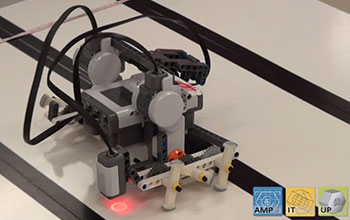
Chief of Space Operations Gen. John W. “Jay” Raymond was virtually interviewed by renowned astrophysicist Neil deGrasse Tyson during the Air Force Association’s Aerospace Air Warfare Symposium Feb. 25, 2021.
As the Space Force perseveres through its second year as the newest branch of service, the two discussed the value, threats and complex challenges that accompany the mission of protecting America’s space assets.
“The challenge is that the access to space, and the freedom to maneuver in space, can no longer be treated as a given. We have to be able to protect it because there are threats that exist today,” Raymond said.
Expounding on the need for a Space Force, Raymond described the broad and robust advances of China, Russia and other countries and how those capabilities are allowing integration into our way of war and our way of life.
“Today, China and Russia have directed energy weapons. Today, they have multiple systems, think lasers, that can blind or damage our satellite systems,” said Raymond.
Commenting the Space Force was “purpose-built” to counter these threats, Raymond noted Russia’s anti-satellite system. Designed to maneuver like nesting dolls, they have the ability to release a projectile meant to kinetically destroy satellites in low-earth orbit. He also mentioned China’s on-orbit satellite equipped with a robotic arm and other cyber threats.
Tyson continued the discussion by inquiring how the CSO handles conflicts when, seemingly, the world is at peace.
“Our primary mission is to deter conflict from ascending into space,” Raymond said. “The cost of space is a very, very small portion of the Department of Defense’s budget. Space is a huge force multiplier. We cannot afford, as a nation, to lose space.”
Reflecting on space heritage, Dr. Tyson wanted to know how the Space Force would continue to lead in the space domain.
“We have the best GPS capabilities in the world. You can’t just build a satellite, launch a satellite and assume it will be there forever. You have to be able to protect and defend it,” Raymond said. “Our commercial industry is the best in the world. Our partnerships with our closest allies are second to none in delivering an advantage. Then, we have incredible people in the Space Force. We have hand-picked every single person that has come into this Space Force.”
As the face of modern warfare changes, Tyson asked how the Space Force would continue to move forward in the future.
“It’s been clearly recognized that space is a warfighting domain. We now have a service that is focused on protecting and defending that domain.” Raymond said. “The U.S. decided to act on an opportunity, to not wait, but focus this new service to be able to move at speed to stay ahead of that growing threat and respond to it.“
Tyson wanted to know if the Space Force, and by extension the United States, would benefit from a new or updated “space treaty” that would better address pollution in space.
“The Outer Space Treaty says that you can’t have weapons of mass destruction in the space domain and you can’t build military bases on planets. Beyond that, it’s the wild, wild west,” Raymond said.
Raymond offered rules for the road on how to operate in space for his successors. “It is not safe or professional for Russia to put a threatening satellite in close proximity to a U.S. satellite. We are working with our partners on these norms of behavior. We operate to demonstrate that good behavior,” he said.
The CSO wrapped the interview by asking Tyson how best to communicate to Americans that space is critical to functions of their everyday life even though the benefits are not always tangible or easy to notice.
Tyson replied, “You get Saturday Night Live to do a skit where they systematically remove all the things from a person’s livelihood that were enabled, empowered or conceived by us having access to space. By the end, they’re left in a cave.”
For the complete interview, watch
https://m.youtube.com/watch?v=VZFhK2SMrWw
Source: US Space Force
This webpage is made available by SEO Press Release, press release distribution service






